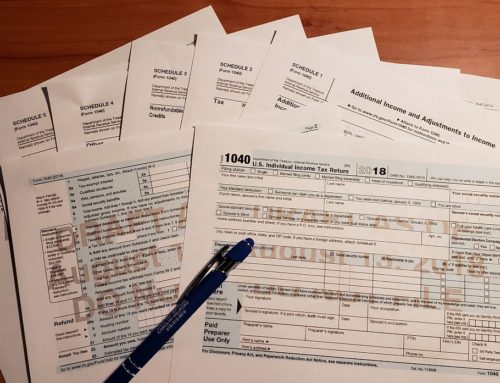Tax Challenges for Operating a Trucking Business
Challenges for operating a trucking business are many, but among the most is understanding how your business is taxed. With the amount of paperwork required to run a trucking business it is no wonder why truckers have such a hard time understanding and keeping track for tax time. It can be very beneficial to your business if you have good record keeping throughout the year and then by April, you can avoid any big surprises.
As an owner-operator, you are responsible for paying taxes yourself. For anyone that was a company employee before, this represents a major change. While your taxes were once automatically withdrawn from your paycheck, now you must calculate and pay them to State and Federal agencies yourself.
Using a good bookkeeping system is a must and can help you calculate the amount of money you should pay for your estimated tax payments every quarter. As a business owner, you must comply with this regulation because it not only eliminates any surprise tax bills, but also avoids tax penalties.
Special note: This article is for general purposes only and not a comprehensive guide for taxes and your owner-operator business. The best way to ensure you’re taking advantage of deductions and paying appropriate taxes is following the IRS.gov regulations and consulting with a tax professional.
Types of Taxes
- Self-Employment Taxes: These taxes are similar to the Social Security and Medicare taxes you paid as a company employee. According to IRS.gov, the self-employment tax rate is 15.3% (12.4% for social security and 2.9% for Medicare). View full details about self-employment taxes at IRS.gov.
- Federal Income Tax and State Income Tax: This is calculated on your tax return. As a company employee, income taxes were estimated and withheld from your check. As an owner-operator, you are responsible for its estimation and payment. You can see tax brackets across states at Tax-brackets.org.
Estimated Tax Payments
Those who expect to owe at least $1,000 in taxes after subtracting withholding and credits are required to make quarterly payments of self-employment and income taxes.
For payment vouchers, addresses for where to send the IRS estimated payments, as well as other federal tax information, visit IRS.gov.
Each state that imposes income taxes has a website to obtain their payment vouchers and addresses.
Recordkeeping
Owner-operators need to have an estimate of what their profit and loss of their business is, by using a bookkeeping software, you can run reports regularly to get the estimate you need to calculate your estimated taxes. This will also help you understand if your business is profitable or not.
There are a lot of software out there to help you such as Quickbooks online, Quicken, Sage etc.. Some software have apps that you can use on your cell phone to check on things, copy receipts etc. You can use whatever software you’re comfortable with using. This will also help when tax time comes as you can run profit and loss reports and have your balance sheet for imputing into your tax return.
Deductions for Truckers
GROSS PAY (as reported on 1099-MISC) – ALLOWABLE BUSINESS EXPENSES = NET PROFIT
If you fail to show deductions or file a tax return, the IRS will determine the taxes that are due, without considering any of your potential deductions. This amount will most certainly be much higher than you otherwise would have been required to pay.
Typical Deductions for Owner-Operators
The following is a list of deductions typically claimed by owner-operators; it should not be considered a comprehensive list.
- Insurance premiums
- Start-up costs
- Supplies (office supplies, chains, binders, tarps, straps, flashlights, any equipment or supplies need for truck)
- Interest paid on business loans
- Tolls
- Permits and license fees
- Travel
- Truck lease
- Accounting services
- Communication equipment – such as your ELD, Transflo
- Internet needed for business
- Truck repairs
- Software needed to run your business
- Depreciable property
- Retirement plans
- and accessories
The main criteria in determining whether something is deductible is whether or not you have a record of the expense, and if it is considered an ordinary and necessary business expense.
The best protection from audits and penalties is being good at record-keeping and honesty.
- Keep all records that support every deduction you claim on your tax return, beginning with the logging system you use for per diem deductions.
- Save and label expense receipts, maintain an expense log, and sort it all out at the end of every run. Don’t forget to collect receipts for lumber fees or any other expenses automatically charged to your credit card. (This includes things such as tolls, scales, and credit-card fees.) Many owner-operators maintain separate credit cards for business and personal use which could help simplify keeping track of your business expenses.
- Don’t overspend on supplies, equipment, and services in your quest to accumulate deductions. Only a portion of those expenses will be recouped through your tax filing.
Per Diem Expenses
The per diem is the tax-deductible amount the IRS assumes you spend on meals, beverages, and tips when you’re away from home on an overnight business trip. For owner-operators, it’s deducted on IRS Schedule C and directly reduces the self-employment taxes and income taxes owed on the return. An over-the-road trucker who is away from home much of the year will save money by using the per diem allowed, rather than gathering meal receipts because few people consistently spend $50-70 a day on meals.
To claim the per diem on any trip, you must be away from home for the night. Even if you work an 18-hour day, you cannot claim per diem if you return home that night. It’s also important to realize that you can’t deduct your total per diem from your tax bill, dollar for dollar. The IRS allows you to take 80% of the per diem as a deduction on your taxes. These are amounts and laws that may change from year to year, so make sure you’re familiar with current IRS regulations.
Company Drivers
With the new tax law changes, company drivers will no longer be able to deduct expenses incurred while driving for a company. The reimbursement of employer expenses has been eliminated.
Some publications to help with your business:
Business Expenses: https://www.irs.gov/pub/irs-pdf/p535.pdf
Estimated tax payments for sole proprietors: https://www.irs.gov/pub/irs-pdf/f1040es.pdf
Estimated tax payments for Corporations: https://www.irs.gov/pub/irs-pdf/i1120w.pdf
Hope this helps!
Carolyn





